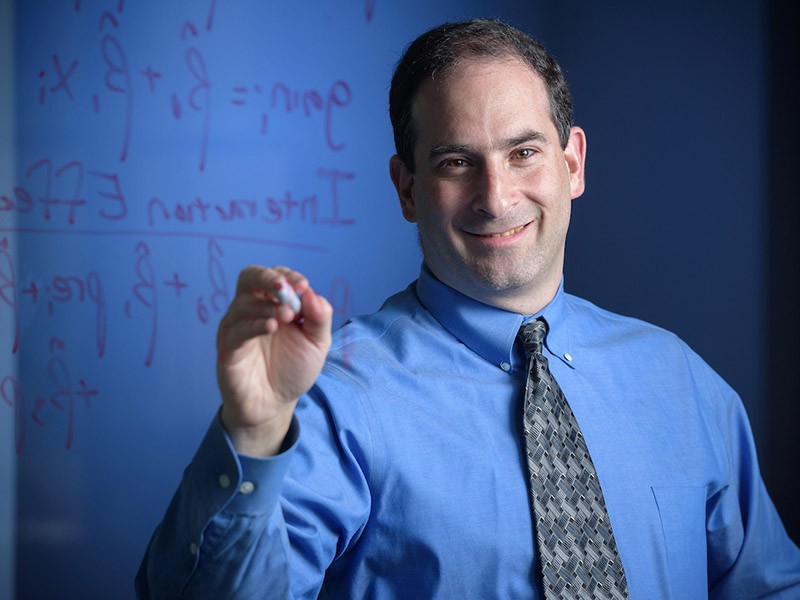Michael A. Posner, PhD, Named Co-PI on $600,000 NSF Grant to Support Statistics and Data Science Education in the US

Villanova, Pa—Statistics and data science are two of the fastest growing fields in the world today. Michael A. Posner, PhD, PStat®, associate professor of Mathematics and Statistics, and director of the Center for Statistics Education in Villanova University’s College of Liberal Arts and Sciences, has been named a co-principal investigator and director for research on a $600,000, three-year National Science Foundation grant supporting the project, “Motivational Attitudes in Statistics and Data Science Education Research” (MASDER).
In today’s era of big data, a competitive workforce requires skills to extract information from vast quantities of data. Developing effective, evidence-based pedagogies in these areas is vital. Student attitudes are an important component in their learning, measuring and understanding of statistics and data science, and Dr. Posner’s research is crucial helping students thrive amidst the data deluge.
This project will create instruments in both statistics and data science that are grounded in learning theory and measure the complete spectrum of teaching and learning by collecting data about students, instructors and the learning environment. This will be one of the first instruments in the budding field of data science education research.
This project will employ nine undergraduate students to work on sampling, survey validation, reports and website design across the collaborative institutions on the grant—California State University at Monterey Bay, Winona State University, Monmouth College and Mt. Saint Vincent University (Canada). Use of the MASDER instruments will lead to better instruction and improved student attitudes towards statistics and data science as well as evidence-based training and professional development material. The instruments and datasets will be freely available for other researchers and teachers to use.
“Our goal for the project is it will eventually impact some of the millions of students across the US who are taught statistics and/or data science annually, and lead to improved data literacy and a more competitive workforce with the skills needed to engage with data in its many forms,” Dr. Posner says.
During his time at Villanova, Dr. Posner has helped solidify Villanova’s growing reputation as a national leader in statistics education. Villanova’s Center for Statistics Education, which he founded in 2013, has created new learning opportunities and enhanced the statistics curricula for Villanova students and provided much-needed resources for many teachers in the Greater Philadelphia area. Dr. Posner’s research, including a focus on student attitudes toward statistics, has been published in both the Statistics Education Research Journal and the Journal for Statistics Education (now the Journal for Statistics and Data Science Education)—the two flagship journals in the field.
This is Dr. Posner’s third NSF grant in the past six years. In 2014 he received two NSF grants in support of his work—one in the amount of $571,000 for his project “Training a New Generation of Statistics Educators (TANGO Stat Ed),” and the second in the amount of $235,000 to create material for an introductory data science course, in collaboration with colleagues from Villanova’s Department of Computing Sciences, professor Lillian “Boots” Cassel, PhD and associate professor (now emeritus) Don Goelman, PhD.
Dr. Posner received his doctorate in Biostatistics from Boston University.
About Villanova University’s College of Liberal Arts and Sciences: Since its founding in 1842, Villanova University’s College of Liberal Arts and Sciences has cultivated knowledge, understanding and intellectual courage for a purposeful life in a challenging and changing world. With more than 40 majors across the humanities, social sciences and natural sciences, it is the oldest and largest of Villanova’s colleges, serving more than 4,500 undergraduate and graduate students each year. The College is committed to a teacher-scholar model, offering outstanding undergraduate and graduate research opportunities and a rigorous core curriculum that prepares students to become critical thinkers, strong communicators and ethical leaders with a truly global perspective.
